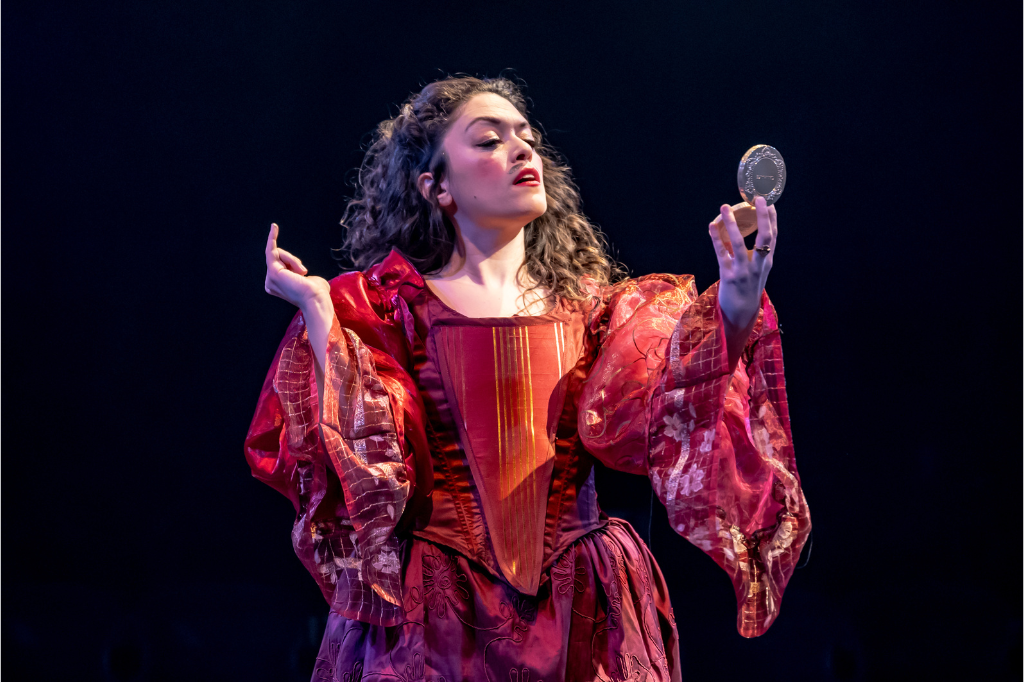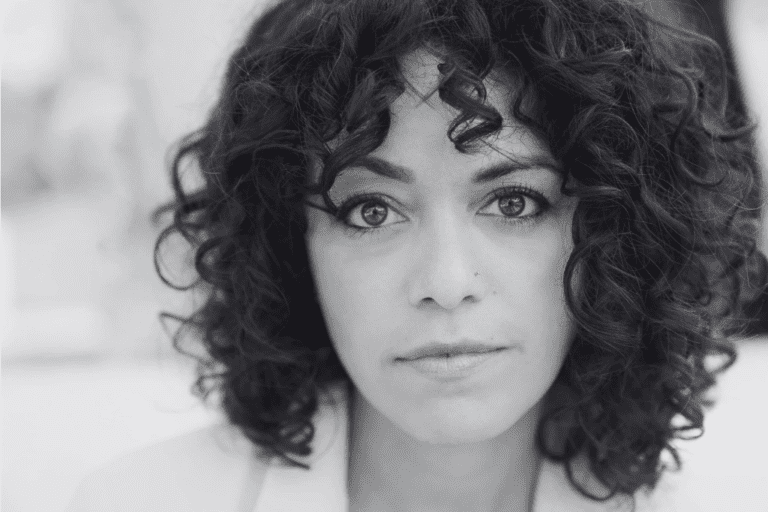What is a feminist rom-com?
There was a palpable clench of concern when I proposed to the team at Nightwood Theatre that we market our show, Mad Madge, as a rom-com. Do we really want the story that we have collectively toiled over for years to be reduced to a genre, let alone one that waves the patriarchal flag so ardently?
Now, I get it. I’ve played both Kate in Taming of the Shrew and Beatrice in Much Ado About Nothing. The OG rom-coms! I know that those shows can be challenging. They’ve infuriated me!
I also know that the feeling inside those shows was very different from the feeling watching them. I adored playing those women. I never had a problem speaking Kate’s speech. I put my hands down for Petruchio happily. It feels vulnerable admitting this but for me, Kate’s last moment is heroic. In order to build true love, one must submit to it, without expectation. Petruchio is too afraid to do that. Kate is strong enough to get the ball rolling.
And on top of that, I want to call my play a rom-com? What kind of feminist am I?
Mad Madge is a contemporary-period mashup inspired by the life of Margaret Cavendish, a prolific writer unapologetically interested in fame, who notably scandalized 17th century theatre audiences by showing up to an opening night exposing her breasts while claiming she wished to attend incognito. Her utopian and prophetic novel, The Blazing World, is considered by many to be the first work of science fiction. And though women writing at the time adopted male pseudonyms, Margaret wrote using her own name. She was eccentric, bold, and painfully shy. She was called Mad Madge.
Among Margaret’s many fascinating contradictions was that of her relationship to her husband, William. She dreaded the notion of marriage, openly railing against its inequities. And yet, Margaret and William’s marriage survived civil war, bouts of debt and poverty, and infertility. They wrote extensively about one another. They vehemently supported one another’s pursuits. They were creative partners. Like Margaret herself, the marriage was ahead of its time.
Have we ever accused Joni Mitchell or Patti Smith or the Brontë sisters of being derivative? Why is it that when we attach humour to a love story, it suddenly becomes insipid?
I wrote Mad Madge in lockdown. While the world collectively migrated toward their most intimate circles, I realized I didn’t have one. It was the most solitary time in my life. I longed for laughter. I longed for love. I have always been a deeply driven person and my dreams have often eclipsed my relationships. I read Margaret and William, their letters, their books. And though my entry point to the play was always our long history of attaching madness to zealous women, it occurred to me that the most radical and honest story I could tell was also that of this partnership in the 17th century.
So why should we not embrace the notion of our show as a rom-com? It seemed categorically advantageous. Entice audiences who adore the rom-com into the theatre then provoke them. And yet, in spite of this, the team remained apprehensive. Why was the pervading feeling that attaching such a genre to the work would somehow diminish its integrity?
Where would we be if we shamed musicians and poets and novelists away from writing about Love? Our greatest artists, our greatest works would cease to exist. Have we ever accused Joni Mitchell or Patti Smith or the Brontë sisters of being derivative? Why is it that when we attach humour to a love story, it suddenly becomes insipid?
Comedic turns are far less likely to win accolades. We laud snotty, weeping performances. And yet, to move an audience to laughter has, in my humble experience, always been more of a feat. Though comedy is highly technical, it must also appear effortless. This takes more work, not less. And yet, if done well, it should seem easy. This is also how I would describe the glorious crisis that is falling in love.
Am I less of a feminist because I watch Dirty Dancing once a year? Am I somehow less intelligent, rigorous, and independent because I adore Jane Austen and Nora Ephron?
I’m a romantic! It’s one of the things I love most about myself! Why do I have to feel as though that, too, makes me lesser than?! Isn’t the purpose of feminism to prevent me from feeling that?
When my sister and I were tweens, we spent an entire summer watching and re-watching Dirty Dancing. We had rewound the VHS tape over one particular moment so many times that the screen would go fuzzy. It was the scene after Jennifer Grey and Patrick Swayze sleep together for the first time. They visit Penny after her abortion. And then on the porch, Jennifer waits for Swayze who seems as though he’s about to blow her off. Then as he’s walking away, she calls his name with a breathy insistence, “Johnny!” He turns and faces her. And in an extreme close-up of Swayze, he slowly smiles and we understand that everything is going to be OK. They’re going to dirty dance again.
Am I less of a feminist because I watch that movie once a year? Am I somehow less intelligent, rigorous, and independent because I adore Jane Austen and Nora Ephron? Because my adolescent life involved yelling “snap out of it!” in the voice of Cher or “I’ll play you! For your heart,” à la Sanaa Lathan? Am I less of a feminist because I’ve written a play about a woman who, in her ardent pursuit of fame and legacy, discovers that life is much better lived with love? Because that play is a romantic comedy?
Well, baby, if that’s wrong, then I don’t want to be right.









Comments